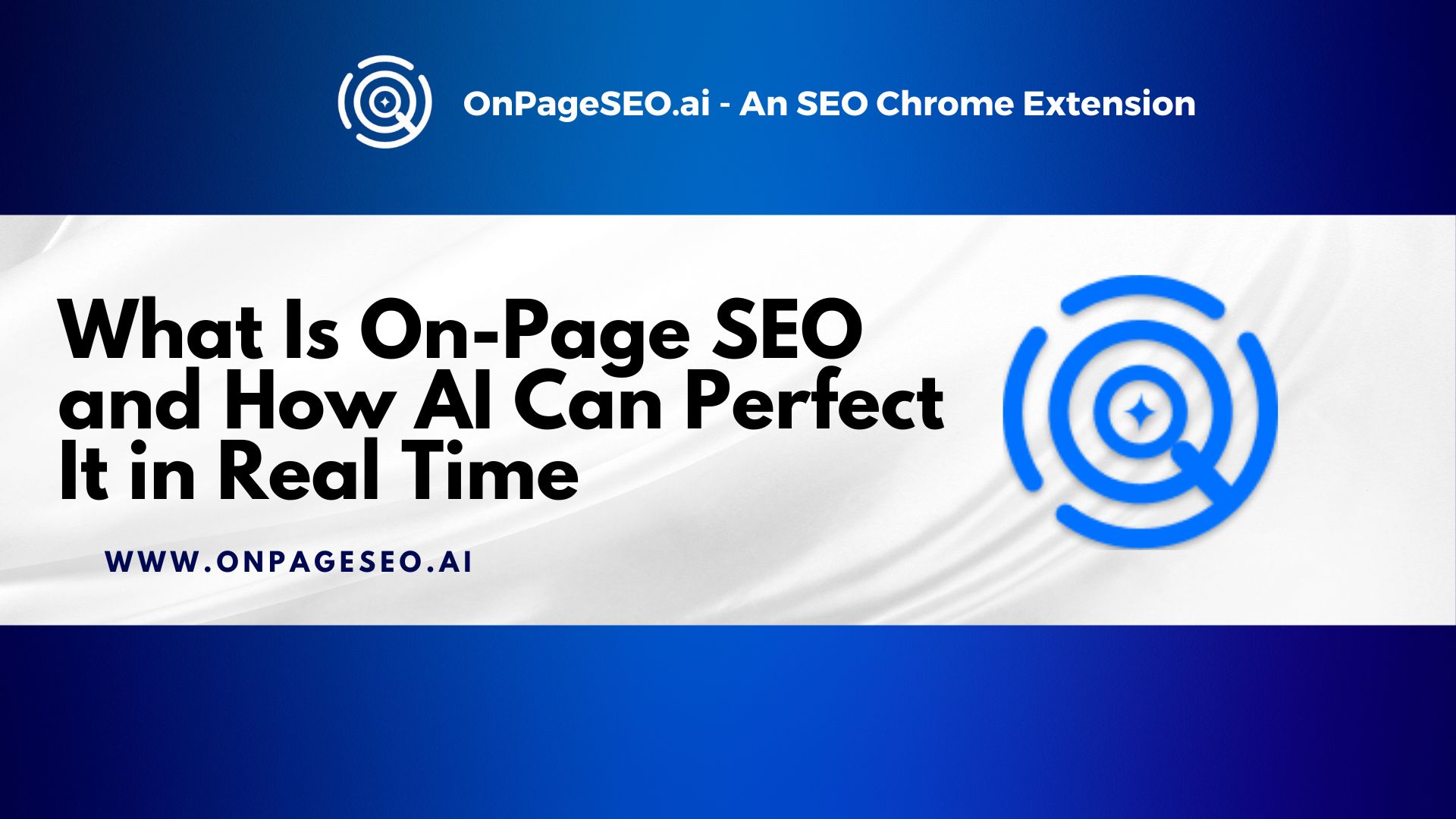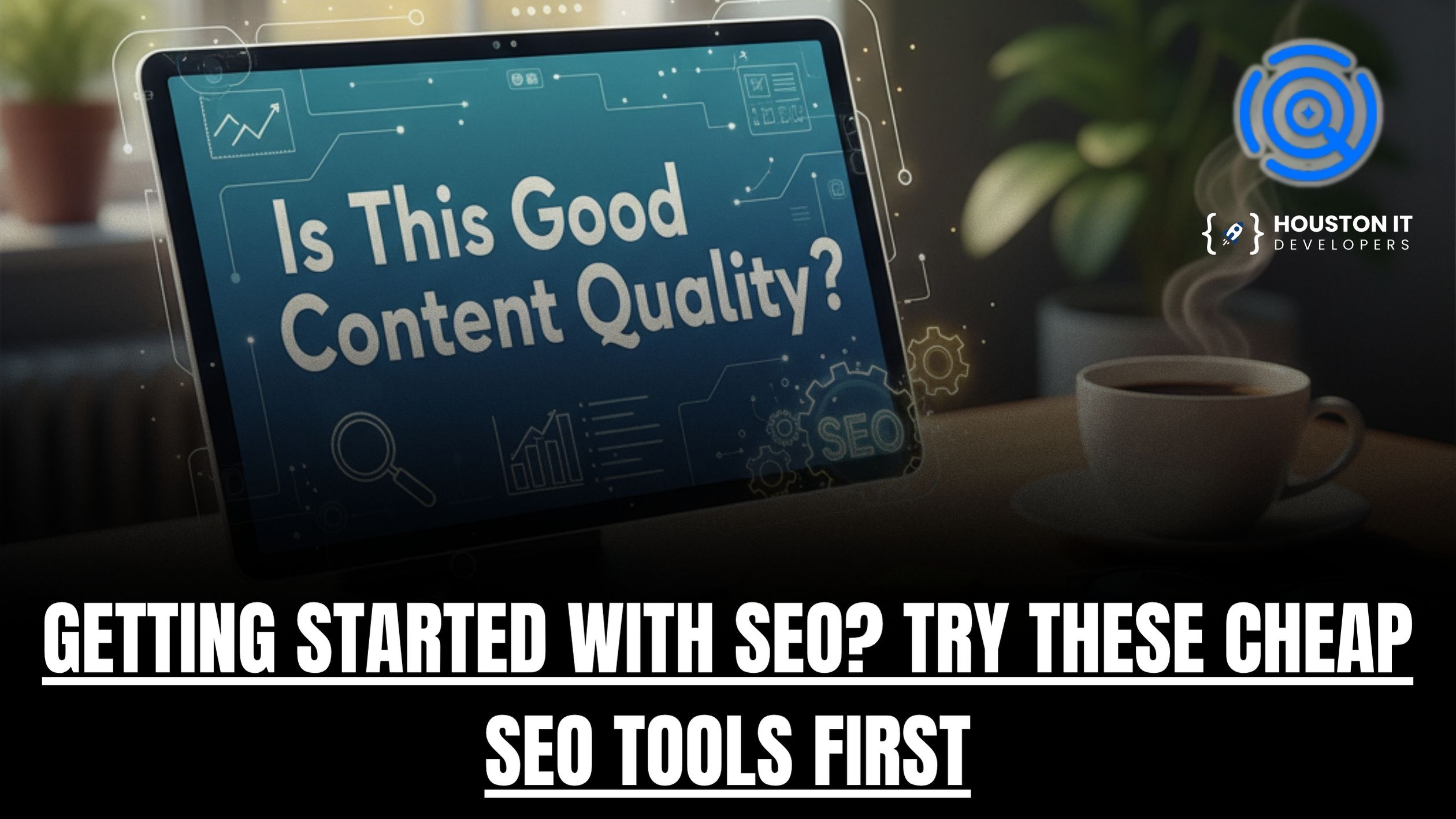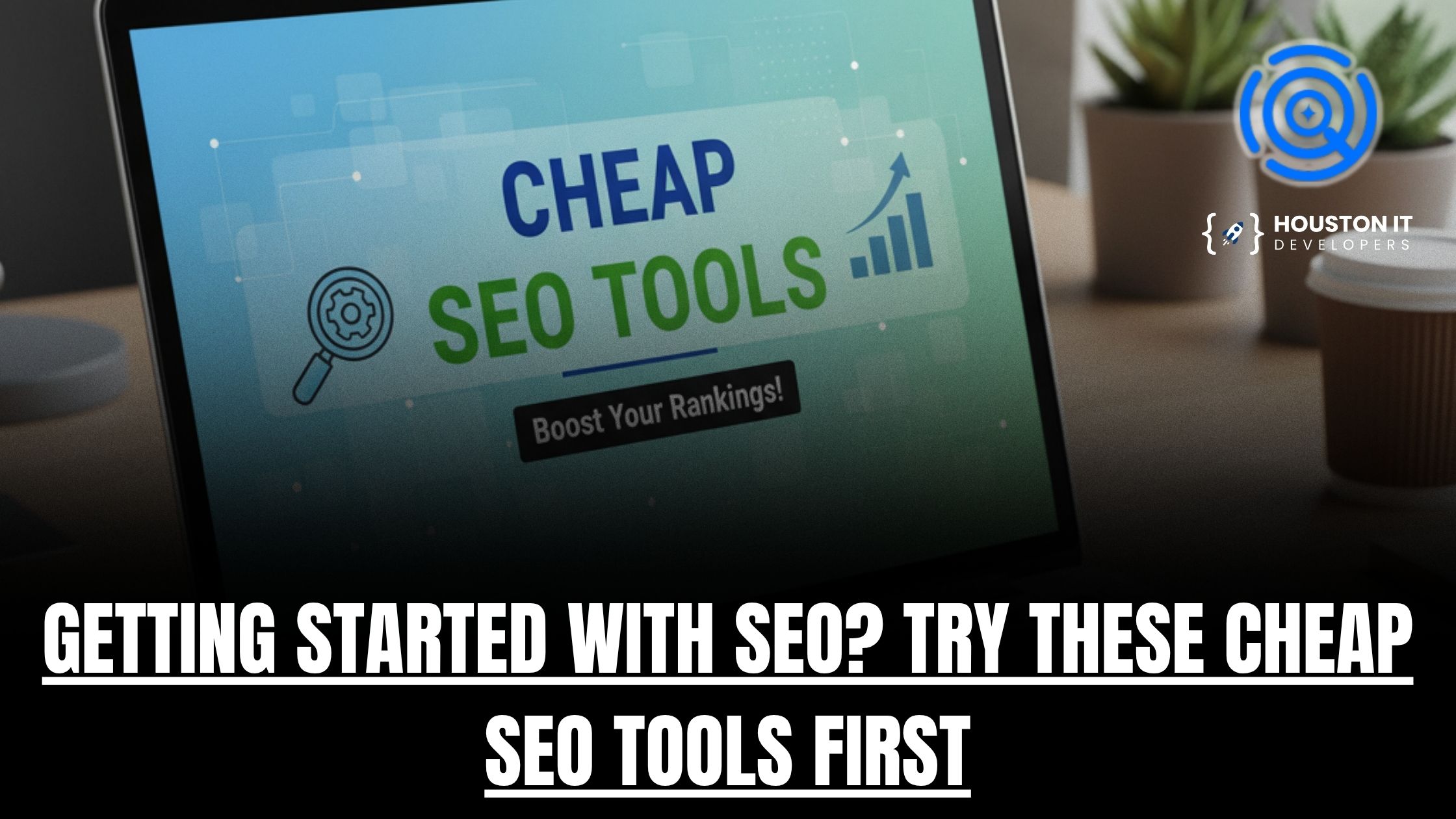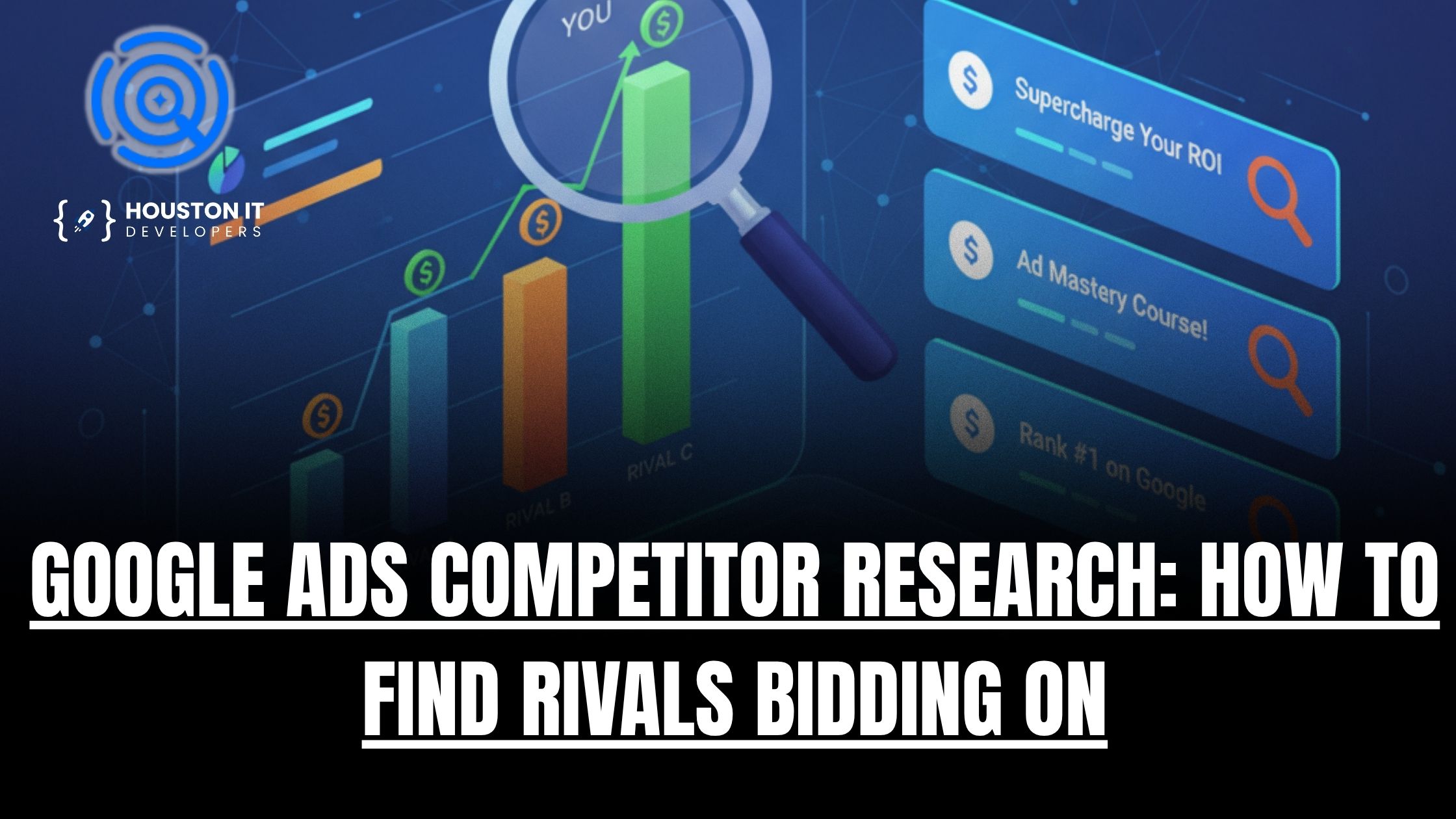Have you ever wondered how “What Is On-Page SEO” can transform your site’s visibility in search results? Here’s a fact: as of 2024, 53% of all website traffic comes from organic search. At the same time, 86% of SEO professionals are now using AI-powered tools to refine their strategies. These figures reveal that organic visibility still dominates, and AI is quickly becoming a core part of the SEO process.
The problem is that many content creators either overlook or misunderstand the finer details of on-page SEO. Outdated practices, missed optimizations, and poor structure can all lead to lower rankings. With algorithms evolving faster than ever, staying ahead requires smarter tools.
In this blog post, you will learn what on-page SEO really means, why it’s more relevant than ever, and how AI SEO tools can perfect your web pages in real time to drive better results.
What Is On-Page SEO? Core Elements That Influence Rankings
On-page SEO refers to the practice of optimizing individual web pages to rank higher and earn more relevant traffic in search engines. Unlike off-page SEO, which focuses on backlinks and external signals, on-page SEO is entirely within your control. It includes elements such as the following:
| Element | Description |
| Title Tags and Meta Descriptions | These elements tell search engines and users what the page is about. A compelling title can boost click-through rates, while a clear description sets expectations. |
| Header Tags (H1, H2, H3) | Structured headings organize content and improve readability. They help search engines understand the content hierarchy and topical relevance. |
| Keyword Usage | Naturally using primary and related keywords strengthens relevance and helps search engines associate your content with specific search queries. |
| Image Alt Text | Alt text makes images understandable to search engines and accessible to users. It also adds contextual signals that support overall SEO. |
| Internal Linking | Linking to other pages on your site improves crawlability, supports navigation, and builds topical clusters that boost ranking potential. |
| Mobile-Friendliness and Page Speed | Google prioritizes mobile usability in its indexing. A responsive, fast-loading page improves user experience and can positively impact rankings. |
| Content Quality | Search engines favor content that is original, relevant, and well-written. Poor quality or duplicate content can result in lower rankings or penalties. |
Each of these elements plays a critical role in how search engines evaluate and rank a webpage. They also enhance user experience, which increasingly overlaps with SEO success.
Common On-Page Mistakes Writers Make Without Realizing
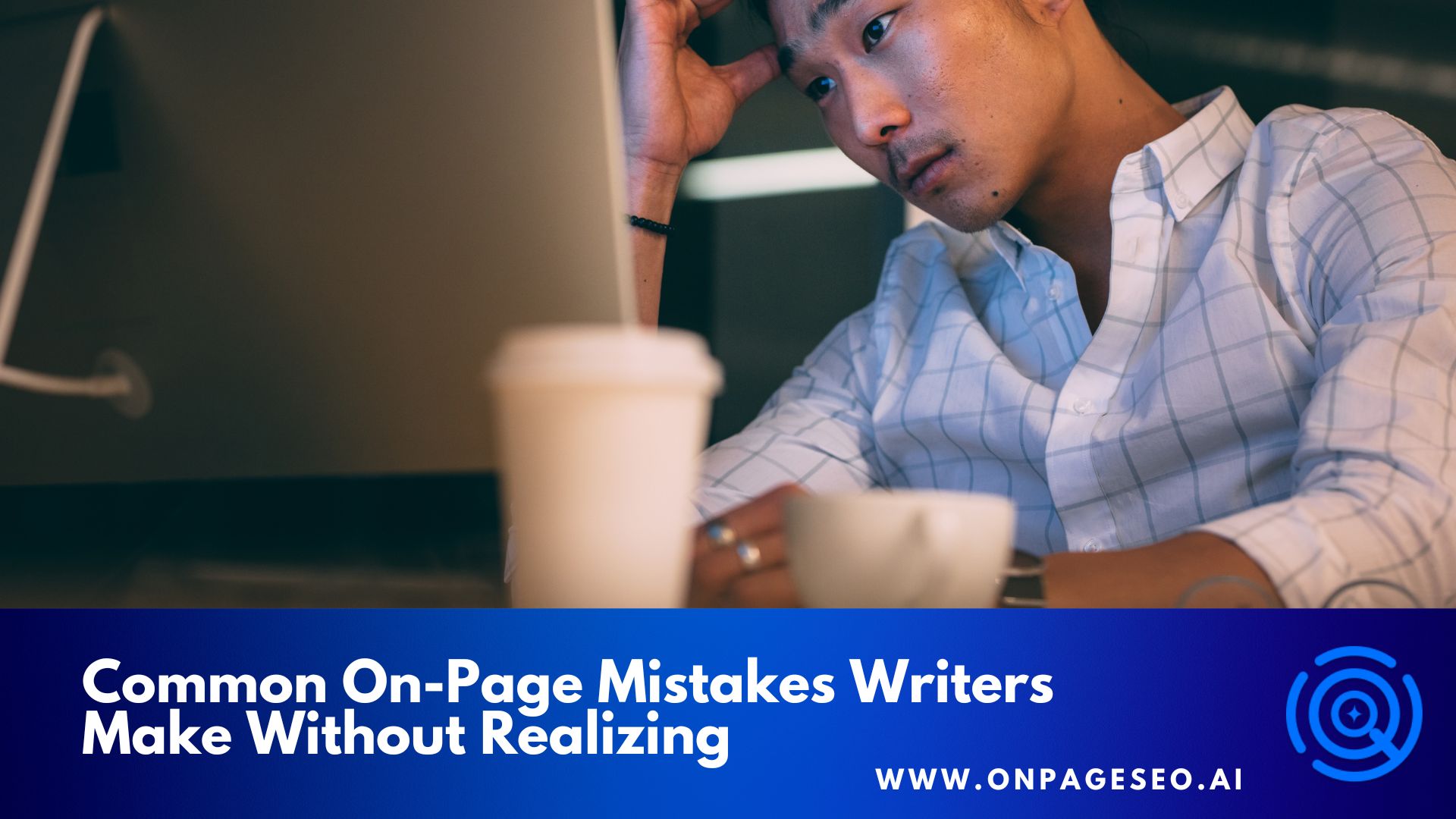
Even seasoned content creators can overlook key aspects of on-page SEO. These oversights can undermine well-intentioned efforts and reduce visibility. Understanding where these mistakes happen is the first step toward improving your content strategy.
- Overusing Keywords – Keyword stuffing is one of the most common mistakes in on-page SEO. When writers repeat target terms too often, the content feels unnatural and can get flagged by search engines as spam. Instead of helping rankings, it drives readers away and weakens credibility.
- Neglecting Meta Data – Many pages go live without optimized title tags or meta descriptions, missing the chance to stand out in search results. Metadata is a core part of what is on-page SEO and acts as a preview for both users and search engines. Without it, click-through rates drop and ranking opportunities diminish.
- Unoptimized Images – Images that are too large slow down page speed, a known ranking factor. Worse, skipping alt text leaves those images invisible to search engines, missing a key opportunity to reinforce topical relevance. Optimized images enhance user experience and help with accessibility.
- Weak Internal Linking – Some writers focus only on content, forgetting to link to other relevant pages on their site. Without internal links, search engines struggle to understand the relationship between your pages. A solid linking structure supports both SEO and navigation.
- Poor Heading Structure – Headings guide both readers and crawlers through your content. When headings are missing, out of order, or used inconsistently, it creates confusion and dilutes the main message. A proper hierarchy helps structure information clearly and supports the core principles of what is on-page SEO.
- Lack of Content Updates – Publishing once and forgetting about it is a missed opportunity. Search engines favor fresh, accurate content, especially for topics that change over time. Leaving outdated information live can reduce trust and hurt your authority in your niche.
Addressing these issues takes more than a checklist. Consistent auditing and real-time assistance are key and that’s exactly how AI SEO tools can provide support. They help identify and fix errors quickly, making it easier to maintain strong, optimized content.
How AI SEO Tools Can Help Optimizing Webpages
Artificial intelligence is changing how we approach SEO. With the rise of automation and predictive analytics, AI SEO tools simplify and strengthen on-page optimization in real time. Here’s how they contribute:
- Real-Time Content Analysis: AI can review your content as you write, flagging weak spots in structure, keyword use, readability, and tone.
- Smart Keyword Suggestions: These tools don’t just suggest primary keywords—they surface related terms (LSI keywords) and NLP entities to enrich context.
- Meta Tag Generation: AI can auto-generate SEO-friendly titles and descriptions based on the content, saving time while maintaining effectiveness.
- Internal Link Recommendations: Tools like Surfer SEO and MarketMuse recommend internal links that improve crawl depth and topical authority.
- Image Optimization Alerts: AI tools can identify missing alt tags or oversized images that affect load speed and accessibility.
- Schema Markup Assistance: Many platforms now help add structured data (like FAQ or article schema) without needing technical knowledge.
By leveraging AI SEO tools, marketers can enhance their on-page strategy, catch mistakes early, and adapt content faster than ever before. This is especially useful for dynamic websites or businesses producing high volumes of content. To understand how on-page and off-page efforts work together in search rankings, visit SEO on page and off page which matters for Google rankings.
OnPageSEO.ai: Real-Time SEO Analysis for Smarter Content Optimization

Understanding what is on-page SEO often starts with breaking down your page’s structure, keywords, and technical elements. OnPageSEO.ai is a Chrome extension built for exactly that purpose. It offers instant insights into how well your webpage meets core SEO requirements, using visual cues and AI-generated suggestions to highlight areas for improvement. It simplifies the process of optimizing content for search visibility by combining manual audits with automation.
For anyone looking to streamline their workflow, tools like this help answer the growing demand for speed and precision in modern SEO. Here’s how AI SEO tools like OnPageSEO.ai improve on-page optimization in real time:
- It performs instant page audits, scoring your SEO health and identifying missing or weak elements.
- It checks and generates title tags and meta descriptions using AI based on your content.
- It maps your header structure (H1-H6) and highlights hierarchy issues with color-coded suggestions.
- It scans internal and external links, offering anchor text analysis and improvement tips.
- It analyzes image SEO by pulling alt texts, file types, and offering conversion to WebP.
- It provides keyword density reports, helping you track word count and LSI keyword usage more effectively.
These features make it easier to spot common SEO gaps and take immediate action, something traditional audits often miss. For a closer look at how AI can identify SEO entities and enhance your content, check out OnPageSEO.ai guide how to find SEO entities with AI tools.
FAQs About On-Page SEO
What is an on-page in SEO?
On-page in SEO refers to the elements you can control directly on your website to improve its visibility in search engines. This includes optimizing content, title tags, meta descriptions, header structures, internal links, images, and keyword usage. These factors help search engines understand your page and determine its relevance for specific queries.
What does onsite SEO mean?
Onsite SEO is another term for on-page SEO. It focuses on optimizing the content and structure within your own website, rather than relying on external signals. Onsite efforts are crucial for improving user experience, enhancing crawlability, and aligning your content with search engine ranking factors.
What is the difference between on-page SEO and off-page SEO?
On-page SEO involves everything you do on your website to optimize it for search engines, such as updating meta tags, improving page speed, and using relevant keywords. Off-page SEO, in contrast, includes external strategies like link building, social sharing, and digital PR that aim to boost your site’s authority and reputation online. Both are essential, but on-page SEO forms the foundation of your search visibility.
Final Thoughts on Indie Music Meaning
Understanding what on page SEO is and how AI can enhance it gives you a clear advantage in today’s competitive search landscape. You’ve explored the core elements that affect rankings, common mistakes to avoid, and how AI tools can support your strategy in real time. The next move is to act on this insight.
Rather than guessing what works, let intelligent tools guide your optimisation. OnPageSEO.ai offers instant SEO analysis, real time suggestions, and keyword support as you create. It helps you catch issues quickly, improve structure, and stay ahead of algorithm updates.
Start improving your content today. Install the OnPageSEO.ai Chrome extension and experience AI guided optimization as you write. Sign up now to simplify your SEO process and boost your site’s visibility.
